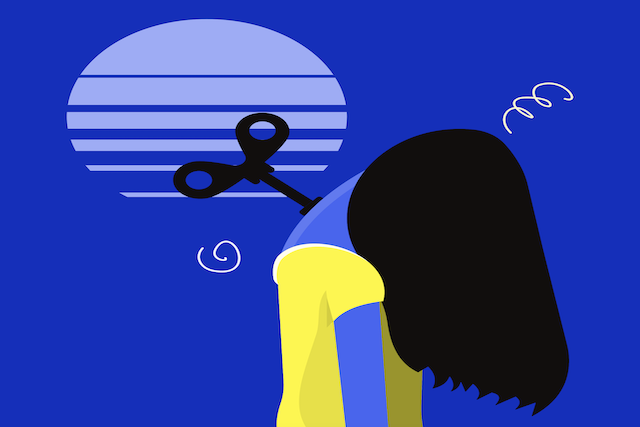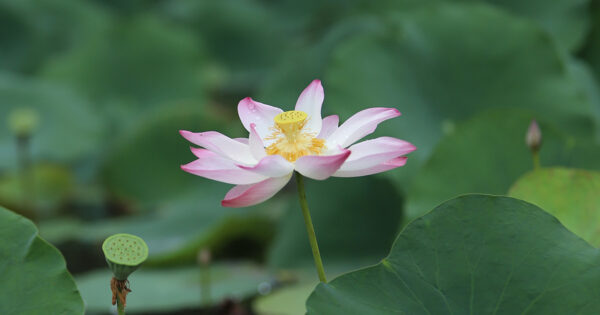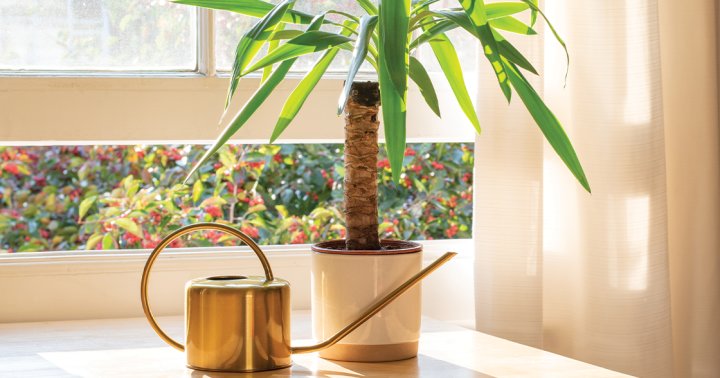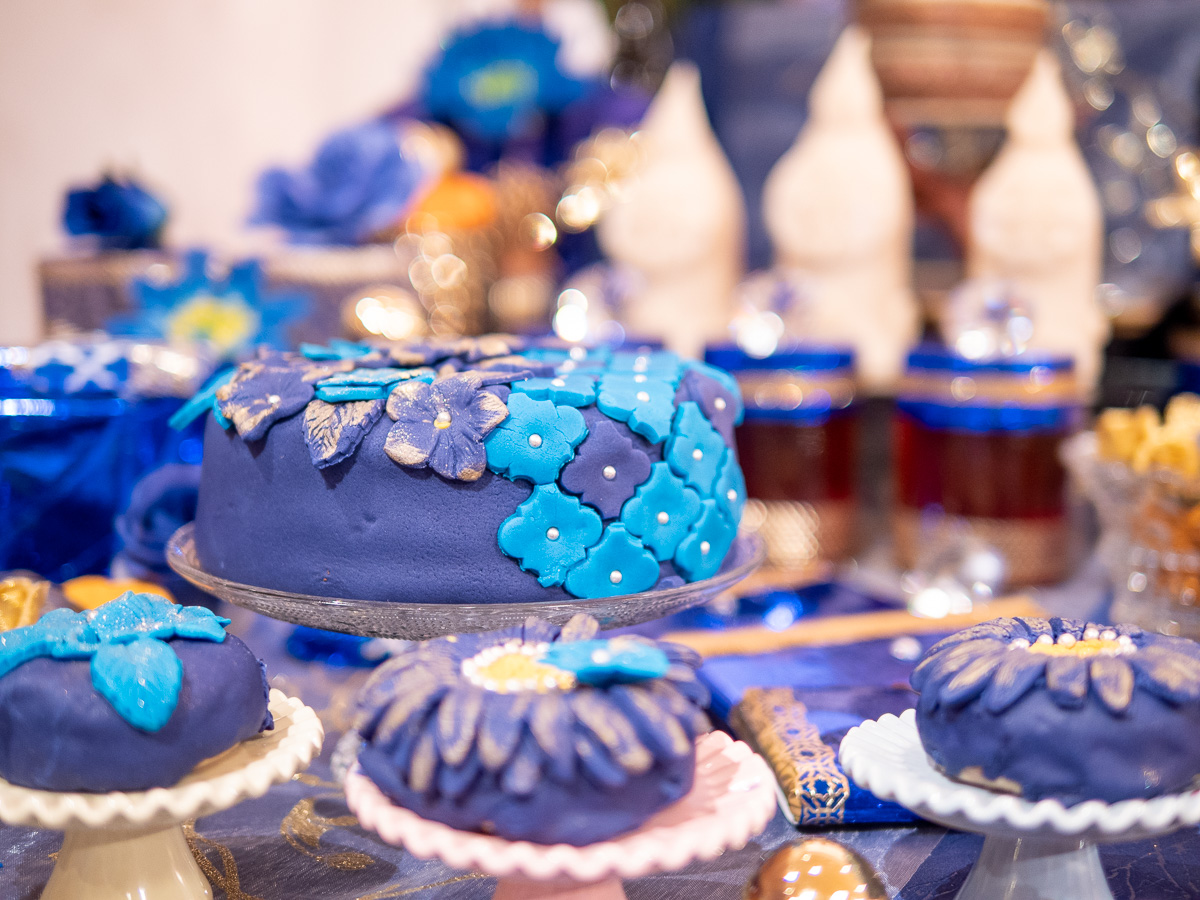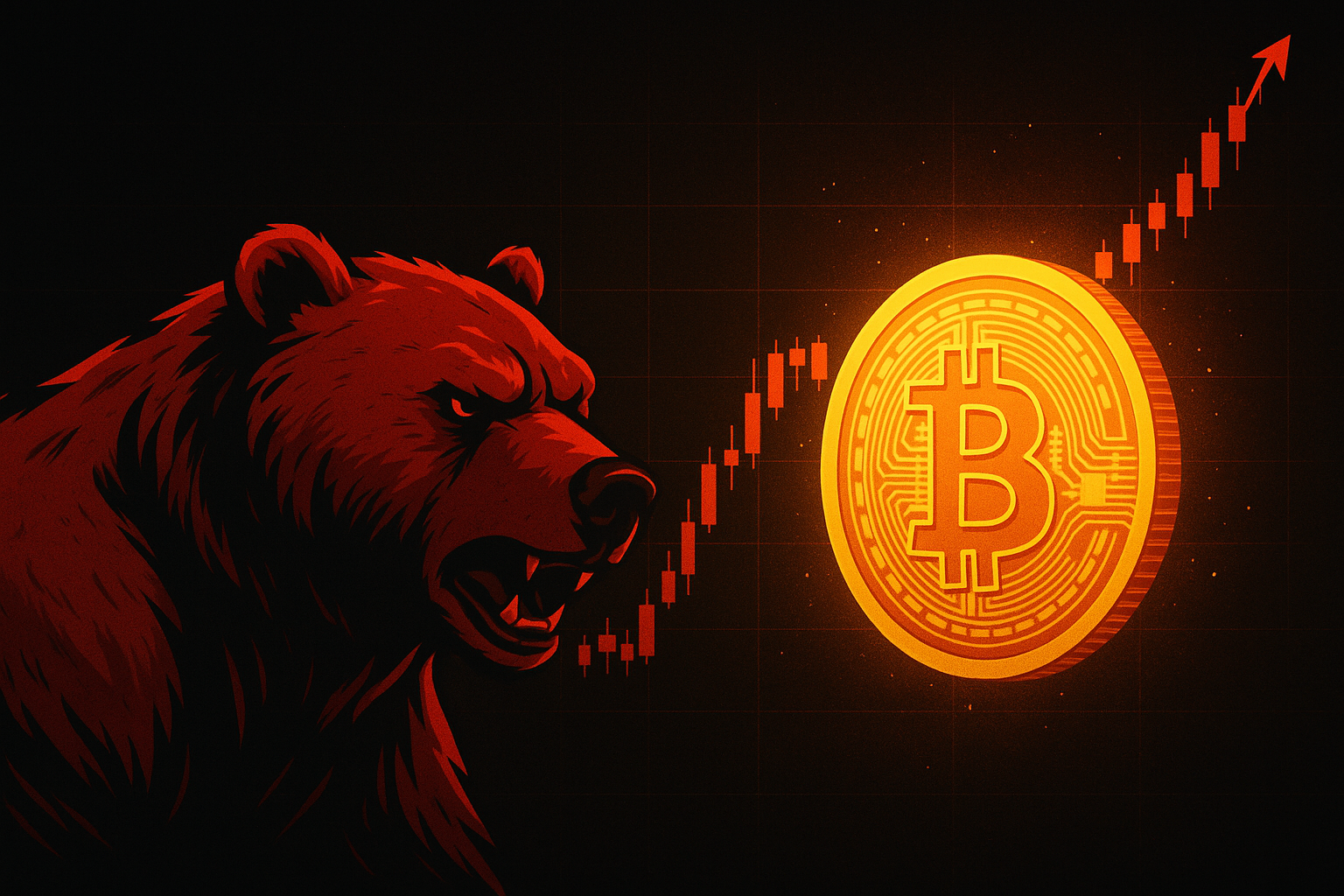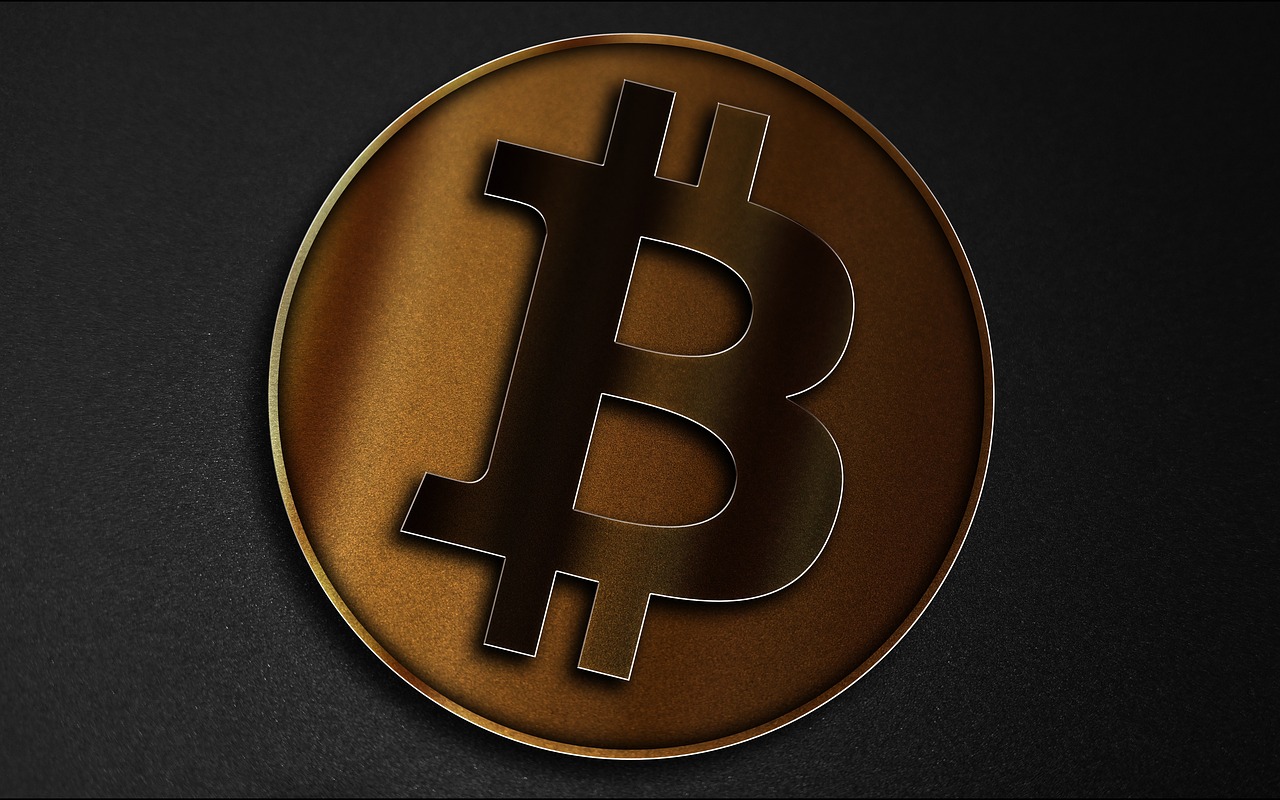Coming Undone But Not Unmade
Accepting the finitude of our lives can grind our plans to a halt and make every single moment more precious, writes Kate Bowler, especially when it’s impossible to know how many moments we have left. The post Coming Undone...
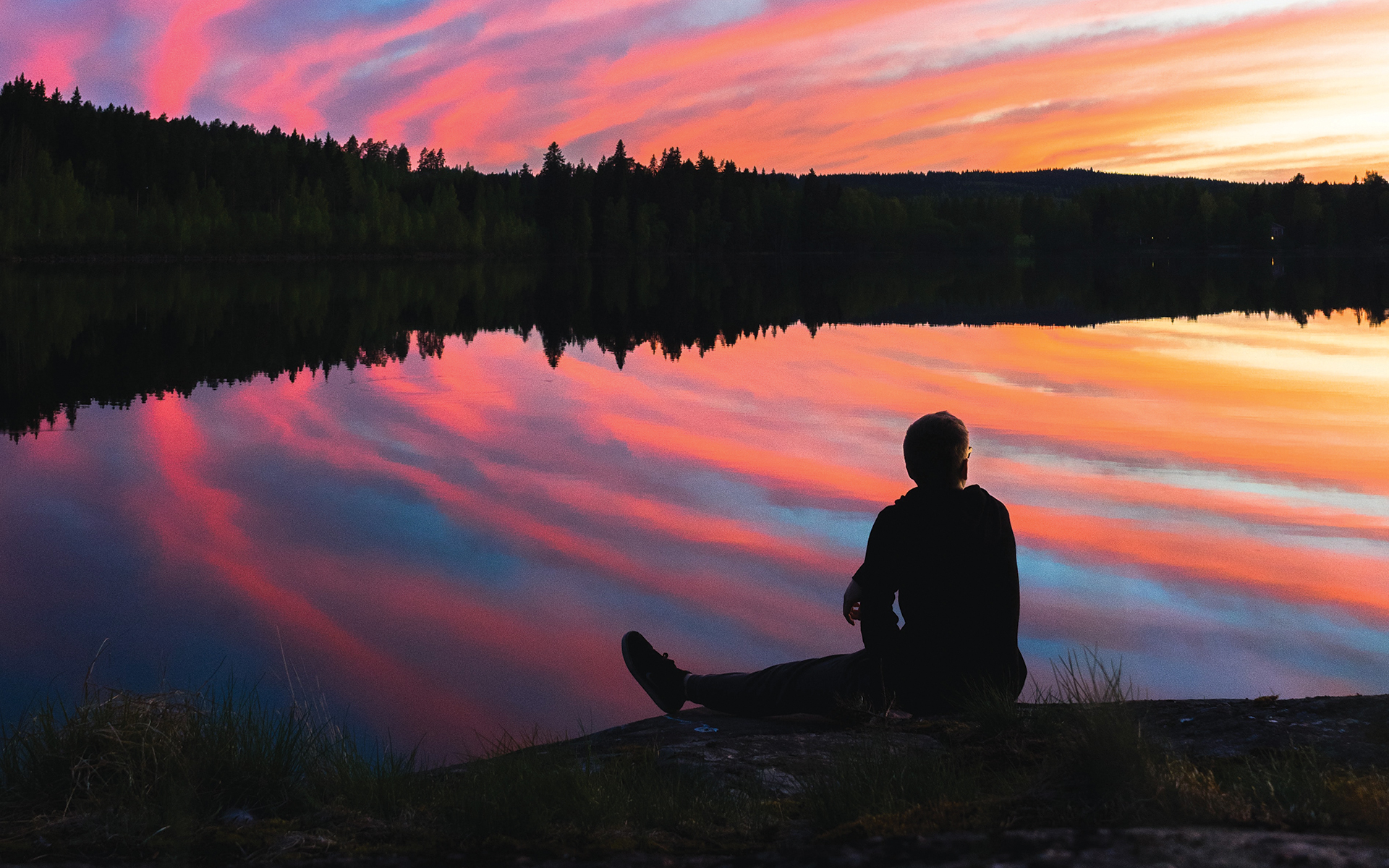
I am a professor of history, so I know this in my bones: Nothing is inevitable. History is made by people who stared, blinking, into the uncertain future. Their paths were not lit before them by sacred meteors. For most of us, this sounds like good news. We choose and choose and choose again.
Before the baby, before the diagnosis, before the pandemic. Before. Before when I was earnest and clever and ignorant, I thought, Life is a series of choices. I curated my own life until, one day, I couldn’t. I had accepted the burden of limitless choices only to find that I had few to make. I was stuck in this body, this house, this life.
American culture has popular theories about how to build a perfect life. You can have it all if you just learn how to conquer your limits. There is infinity lurking somewhere at the bottom of your inbox or in the stack of self-help books on the bedside table. It taunts you as you grip the steering wheel in traffic, attempting your new breathing practice, or in the predawn minutes when you could be working out.
I have seen these guides to endless progress for sale in airport kiosks. There are bucket lists galore with glossy photographs of thrills and architectural wonders; calendars with rituals to eradicate inefficiencies; and writing journals juiced with visionary wisdom from gurus and titans of industry. These are the formulas for a meaningful life, how to live one, and how to end one.
But the truth is somewhere inside of me: There is no formula. We live and we are loved and we are gone. Tumors budded and spread across my colon and liver without my consent, and here I am. I feel a spark of horror each time I remember it: We come undone.
This is what happens to all of us.
Bucket Lists
My precarious diagnosis has triggered a series of mental-health assessments at the cancer clinic during which lovely and well-meaning counselors, all seemingly named Caitlin, are telling me to “find my meaning.” They wonder if I should consider making a “Bucket List,” as many other patients have found the process to be clarifying. What new skill could I learn? What classic movies should I watch? Is there a passion I might reignite? Cross-stitching? Restoring a vintage car? Soaring in a hot-air balloon?
I attempt to take notes while they are talking, but I find myself in a flurry of queries to the internet about the origin of the term bucket list, followed by a long period of processing my disappointment that it only became popular in the eponymous 2007 movie starring Jack Nicholson and Morgan Freeman. Boring. But I resolve to try to follow the lead of The Caitlins nonetheless. After all, what do I know about dying? I’ve never done it before.
On those merciful days without medical treatment, I begin to spend long afternoons in the stacks of the library digging through the history of the bucket list. The phrase itself is easy enough to date. In the eighteenth century, the term became a horrible reference to the act of either “kicking the bucket” from under your own
feet (suicide) or having it knocked out from underneath you (homicide). But the idea that we should seek out a series of defining experiences is as old as our historical record. The ancient Greeks compiled a list of marvels known as the Seven Wonders of the World including the Hanging Gardens of Babylon and the Great Pyramid at Giza. Travelers in the Roman Empire could consult guidebooks to steer them to the home of the Greek philosopher Pythagoras and his famous theorem.
A bucket list disguises a dark question as a challenge: What do you want to do before you die? We all want, in the words of Henry David Thoreau, to “live deep and suck out all the marrow of life.” But do we attain that by listing everything we’ve ever wanted to do? Should we really focus on how many moments we can collect? The problem with aspirational lists, of course, is that they often skip the point entirely. It is much easier to count items than to know what counts.
What Counts?
The maxim “live in the moment” is ancient wisdom repackaged. Don’t worry, be happy. Hakuna matata. You only live once. It is the marrow of hedonism—that centuries-old philosophy rooted in the pursuit of pleasure—and the hope of every college student. Gather ye keg stands while ye may. Heaven seems distant when paradise is now.
There are versions of this philosophy which are, of course, pure idiocy. Living in the moment can make us careless and materialistic, selfish and prone to wanton acts of never taking a multivitamin. Why recycle? Why save for retirement? Tomorrow is nothing but happiness deferred.
But in this digital age of exhaustion and distraction, the ability to be present-minded has become a rare
and valuable commodity. My inbox is flooded with newsletters explaining how various philosophical, religious, and psychological strategies of mental self-management will help me embrace the fullness of each day, unfolding each moment like a gift. Our therapeutic culture swears this is freedom: freedom from our dizzying thoughts and our conflicting emotions as we exorcise the demons of negativity and desire. In this new strain of heroic individualism, people master the world by conquering their own inner worlds.
In my finite life, the mundane has begun to sparkle.
The terrible gift of a terrible illness is that it has, in fact, taught me to live in the moment. Nothing but this day matters: the warmth of this crib, the sound of his hysterical giggling. And when I look closely at my life, I realize that I’m not just learning to seize the day. In my finite life, the mundane has begun to sparkle. The things I love— the things I should love—become clearer, brighter.
Burdened by the past, preoccupied by the present, or worried about the future, I had failed to appreciate the inestimable gift of a single minute.
Time is not an arrow anymore, and heaven is not tomorrow. It’s here, for a second, when I could drown in the beauty of what I have but also what may never be. Hope for the future feels like a kind of arsenic that needs to be carefully administered, or it can poison the sacred work of living in the present: taking my medication, asking about a friend’s terrible boyfriend, and inhaling the smell of my son’s skin as he sleeps next to me. I want to be alive until I am not.
What Is Enough
There will never be enough of these moments for me. Enough anniversaries with the man who still thinks that late adolescence was an acceptable time to get married. Enough pages of history books I scribble and then immediately send to my father, who will put on his glasses and squint at the screen impassively until he loudly declares it to be “Quite acceptable!” Enough early mornings feeding spoonfuls of glop into my son’s mouth between our fits of giggling. And if those are the measures of time, I am bankrupt.
Once every few hours I pause what I am doing because I can’t take a breath. I have caught a glimpse of the terrible someday when, even though I am his mom and he is my son and those words keep the birds in the sky, I may not be able to hold him.
I prepare for these moments each night, wide awake, imagining a time when I will be gone, even from his memory. When he will not know the weight of my hand on his blond head.
He will wonder which of his features are mine (his mouth) and what traits started with me (his evil laugh). He will be at a party and someone will say, “You remind me of your mom,” and he will feel a pang that a stranger knew me and he did not.
I canvass everyone I know who has lost a parent to find out what stories they cherish, and I incessantly google articles about long-term memory in children. Exactly how old does he have to be to find me in his memory? And what work do I need to do to be remembered? I put this question to my psychologist, who shakes his head. “Kate, you are laying the foundation. It’s there, but, yes, you might not get to see what he builds on top of it. The foundation is the part that doesn’t show.”
We are the sum of our experiences, the story goes, and require no retrospection. The road behind us could never have led anywhere but here.
And I’m closer to the truth of this experiment—living—and how the horror and the beauty of it feels almost blinding. I’m coming undone, but I’m not unmade.
All along, I wanted a formula for how to live, and cancer treatment has provided the clearest one of all. Follow the rules. Keep to the schedule. Trust the experts. Smile! You’re so lucky. All of our masterpieces, ridiculous. All of our striving, unnecessary. All of our work, unfinished, unfinishable. We do too much, never enough, and are done before we’ve even started.
Copyright © 2021 by Kate Bowler
All rights reserved. Published in the United States by Random House, an imprint and division of Penguin Random House LLC, New York.
How to Practice Gratitude
Practicing gratitude has incredible effects, from improving our mental health to boosting our relationships with others. Explore ways you can be more appreciative in our mindful guide to gratitude.
Read More
Lean In to Love
In this interview with Barry Boyce, beloved teacher Frank Ostaseski shares how his years of mindfulness supported him after a series of strokes transformed his life.
Read More
A 4-Step Practice to Awaken Your Intention
A strong intention is like a rudder to navigate us through stormy seas. Wendy O’Leary offers a practice to reflect and return to our personal intention, no matter the weather.
Read More

 FrankLin
FrankLin 







